A dinner to remember, made by culinary students who are aging out of foster care
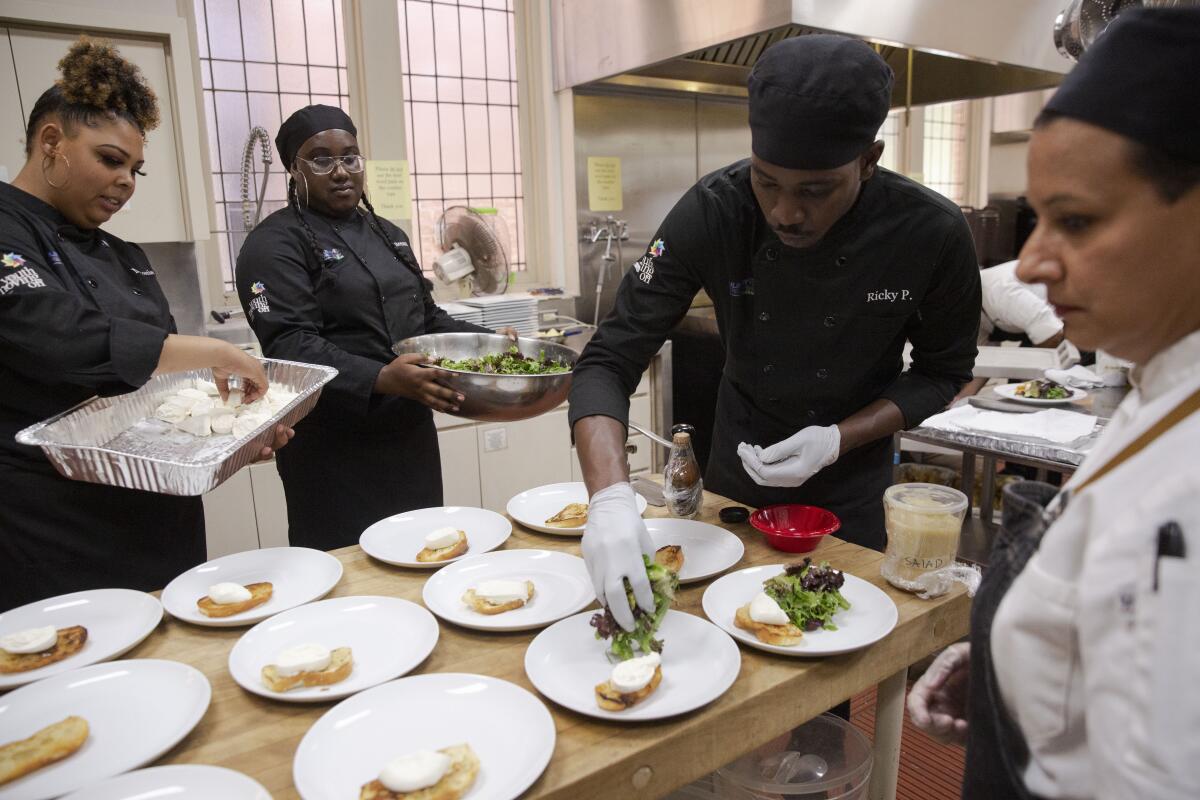
- Share via
On a hot summer afternoon, the spacious kitchen of Pasadena’s First United Methodist Church was bustling. Culinary students and their chef-teachers were chopping basil, crushing watermelon, and laying slices of rustic bread on baking sheets.
The students — in their late teens and early to mid-20s — were in high spirits. It was Saturday, and they were preparing a five-course meal for dozens of lucky guests, who would gather for dinner in the church’s courtyard on Sunday.
Under the supervision of professional chefs who had volunteered their time, the young cooks would stuff mushroom caps, marinate carrots for a vegetarian ceviche, slow roast tomatoes for rigatoni, make arugula shallot chimichurri for grilled flat iron steak and whip up a dessert of brown sugar blackberry upside down baby cakes.
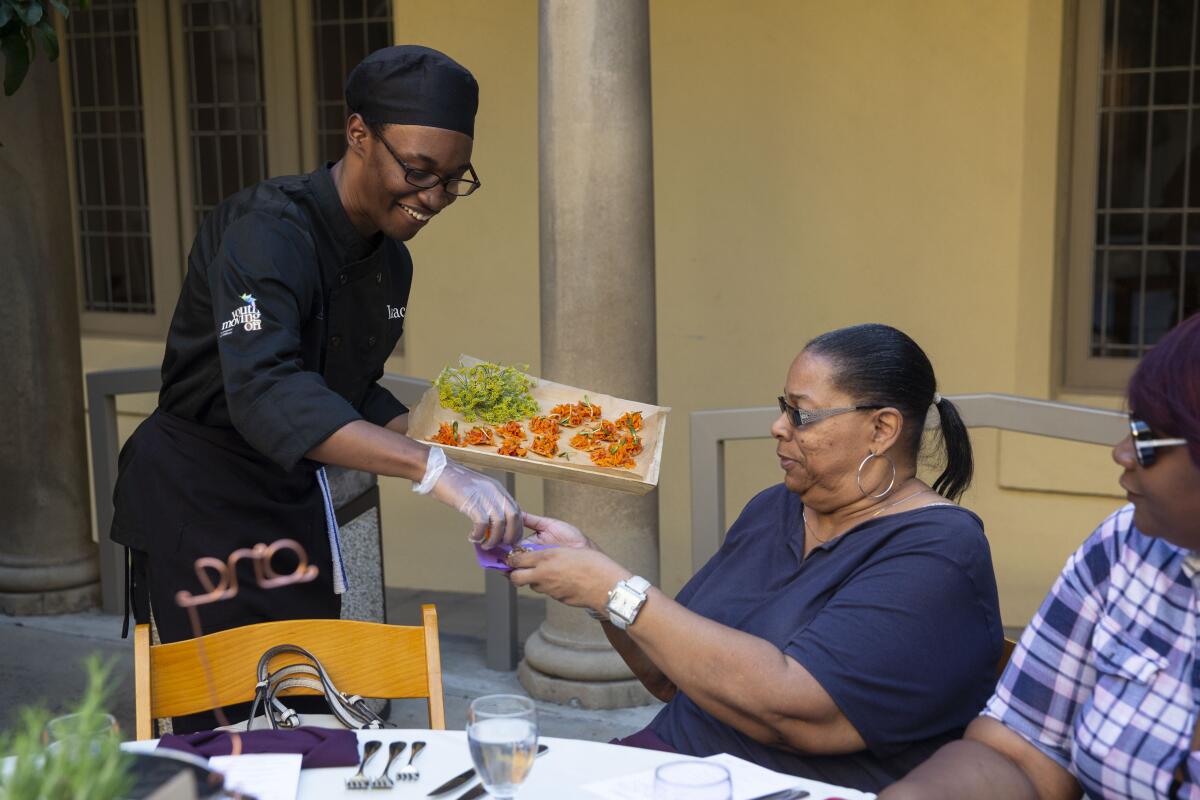
The dinner would be a graduation of sorts for these young adults, who had spent the past 10 weeks in a new culinary training program created by Hillsides, the Pasadena-based foster care and mental health charity. Twelve of them started; 10 finished.
“We weren’t sure how many were going to stick it out,” said Correnda Perkins, who dreamed up the program with her colleagues. “Our population can be transient, especially when housing isn’t stable.”
Perkins oversees Hillsides’ programs for “transition age youth” between 18 and 25, who have aged out of foster care, but who still need support, including housing and workforce training. Two of her aspiring chefs are homeless or couch surfing. Six live in transitional housing that allows them to stay for only two years.
The Culinary Apprenticeship Program, which pays the students $13 an hour, will help them figure out if they are suited to restaurant work.
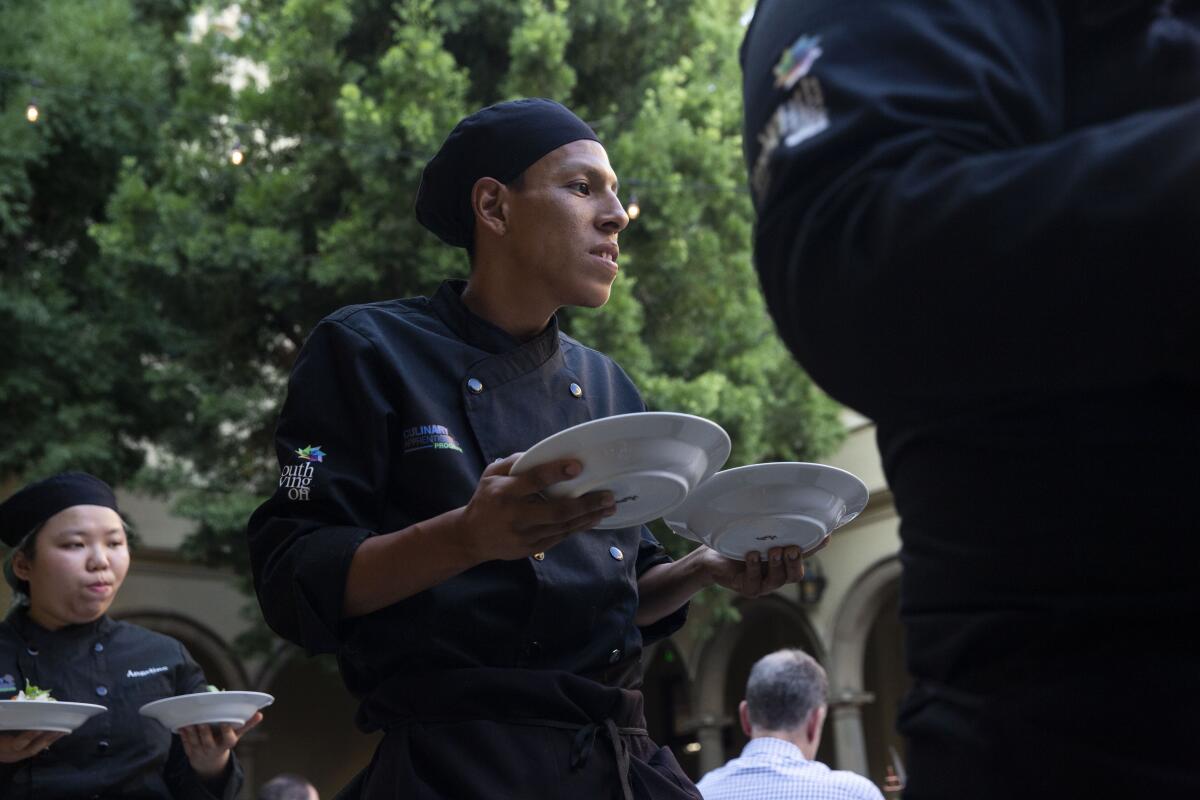
“They don’t always have time to follow their passions,” Perkins said. “They need a paycheck.”
Also, many former foster kids have nothing to put on resumes. “We want to give them a fighting chance to get employment,” she said.
Over the course of the apprenticeship, the students learned how to use knives, how to keep a kitchen clean, how to blanch vegetables, make sauces. They shopped at a farmer’s market and were invited to make their favorite drinks at Starbucks.
“The first time I brought in a purple carrot,” said chef Alexandra Poer of Alexandra’s Table catering, “you could see their minds exploding.” Many hadn’t ever seen an eggplant.
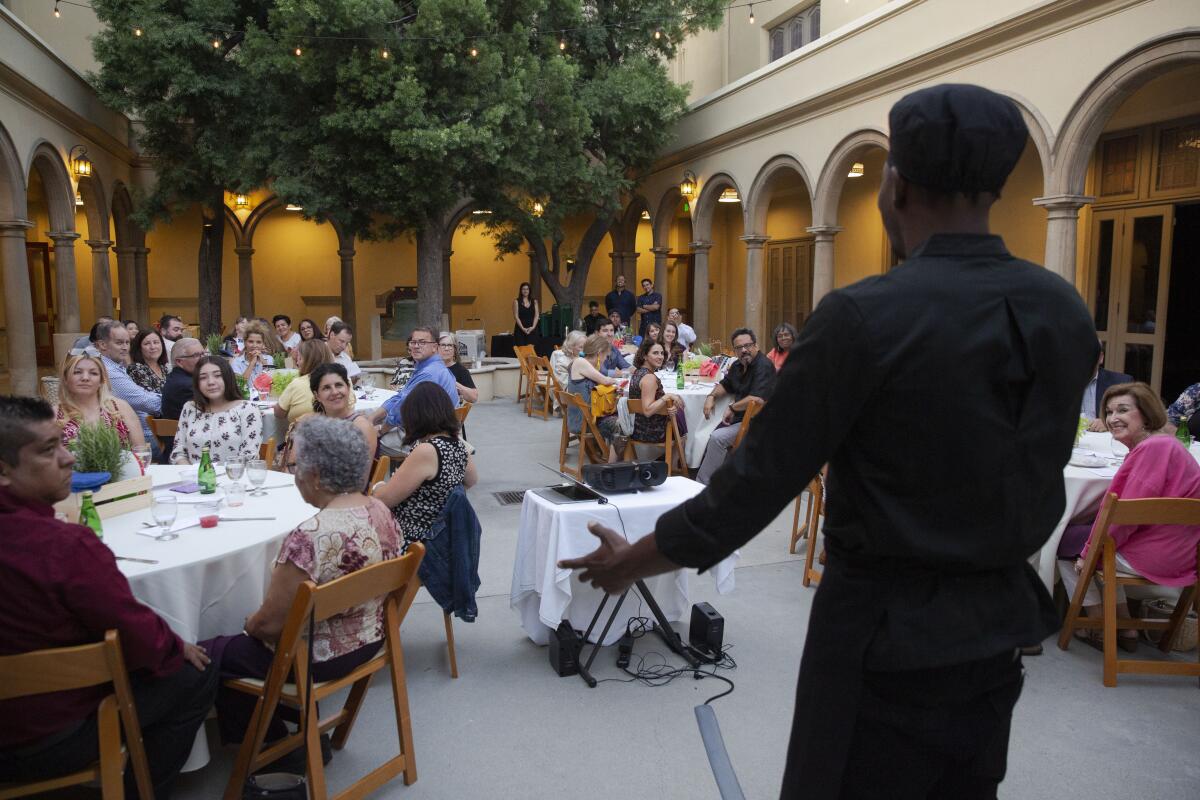
Her fellow volunteer chefs included local restaurateurs Charlie Negrete, Claud Beltran, Doug Fore and Geoff Jennings.
In the kitchen, Ricky Porter, a 23-year-old aspiring baker, was overseeing dessert.
He carefully topped individual, batter-filled ramekins with blueberries, tiny slices of figs and brown sugar. The cake would be served with a cardamom gelato.
Suddenly, someone realized they forgot to add buttermilk, an essential ingredient for this cake.
Chef Poer shrugged. Coping with catastrophe is a critical restaurant skill.
She directed the students to scrape off berries, figs and brown sugar, dump the batter back into a bowl, add the overlooked buttermilk, and start over.
“The cakes will be fine,” she said.
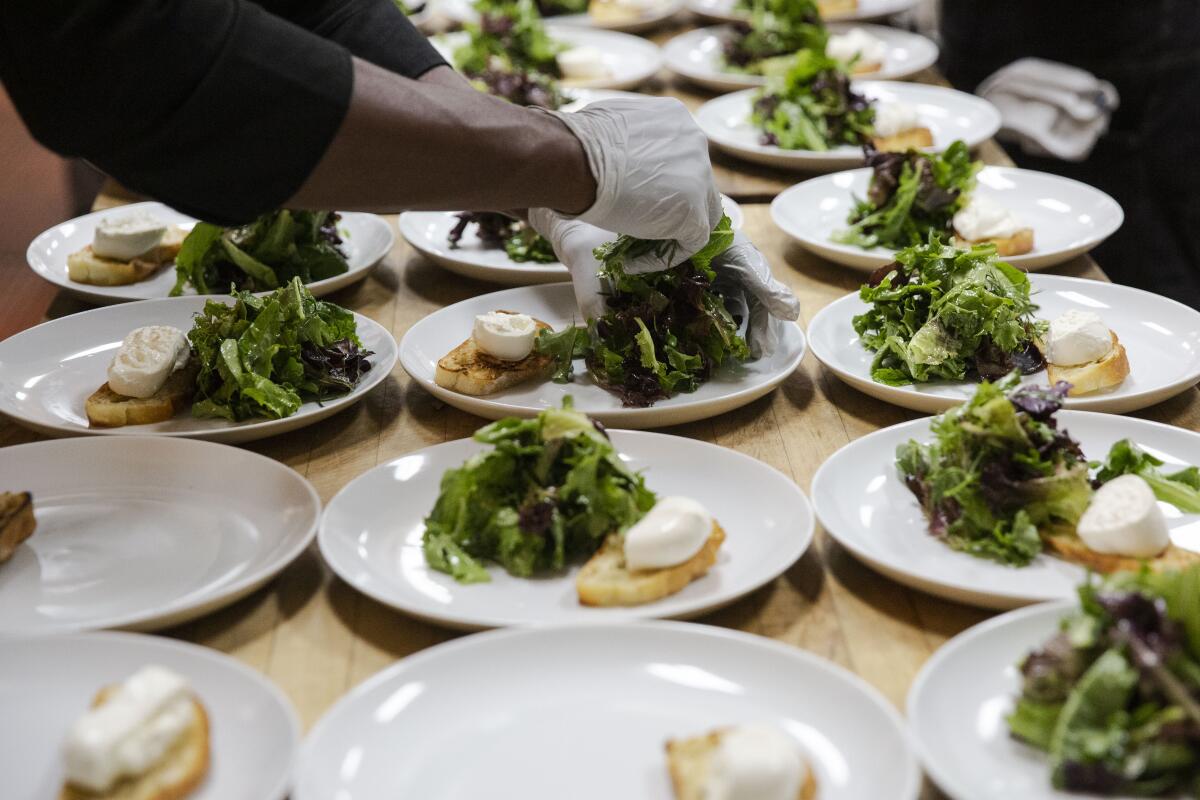
::
Having recently become a foster parent, I marvel at the children who bounce from home to home, from social worker to social worker, from school to school, and still manage to become functioning, loving adults.
Take Ricky Porter, who dreams of owning his own bakery. He’d like to be an inspirational speaker too, he said. He’ll certainly have a story to tell.
From birth to age 21, he said, he lived in 25 foster homes. Some were wonderful, some were awful. Almost every time he moved, he had to change schools. He thinks he attended more than 15 middle and high schools.
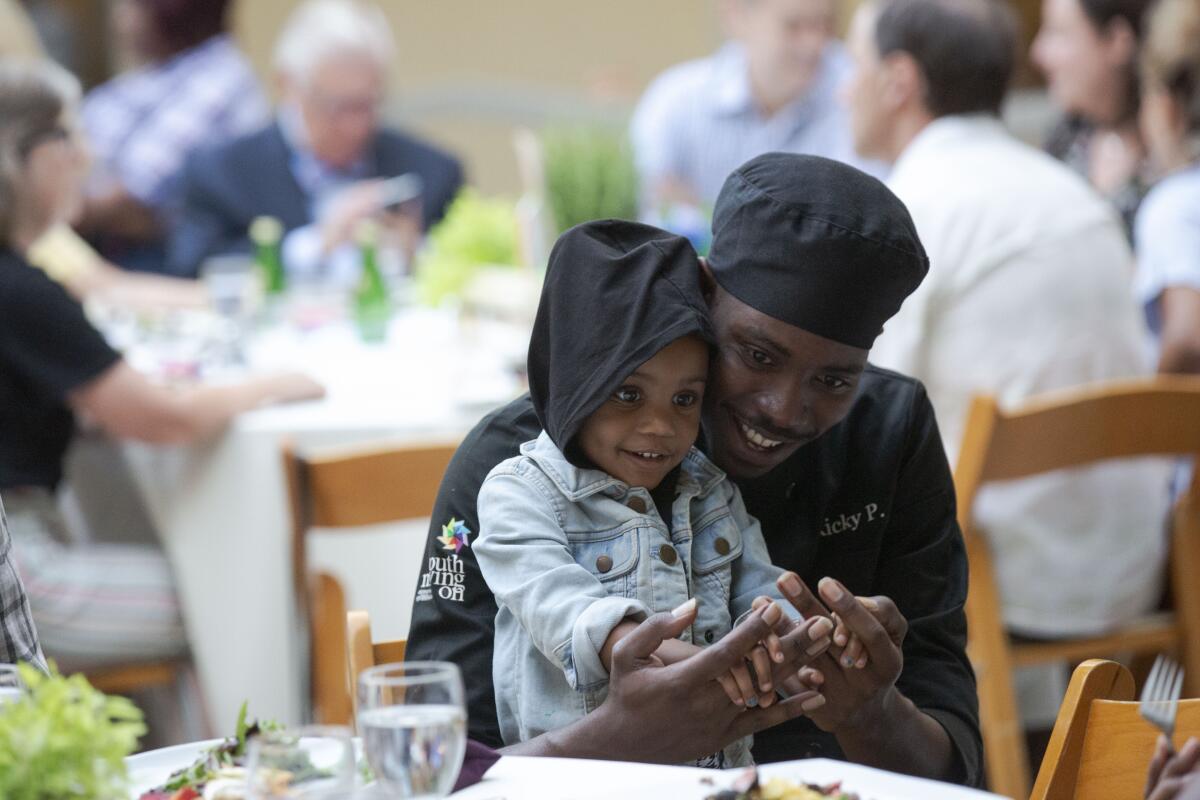
In fact, when he started listing all his middle and high schools, my jaw actually dropped.
In 10th grade, he was expelled after blowing up at a teacher.
“I had a troublesome foster home at the time, so I didn’t get a lot of sleep,” he said. “And he was my first-period teacher.”
He graduated from Quartz Hill High in Palmdale, where he had managed to spend his entire senior year.
He discovered his love for baking during elementary school, when he lived with a Salvadorean family in Palmdale, and was put to work in the family bakery, making peanut butter cookies.
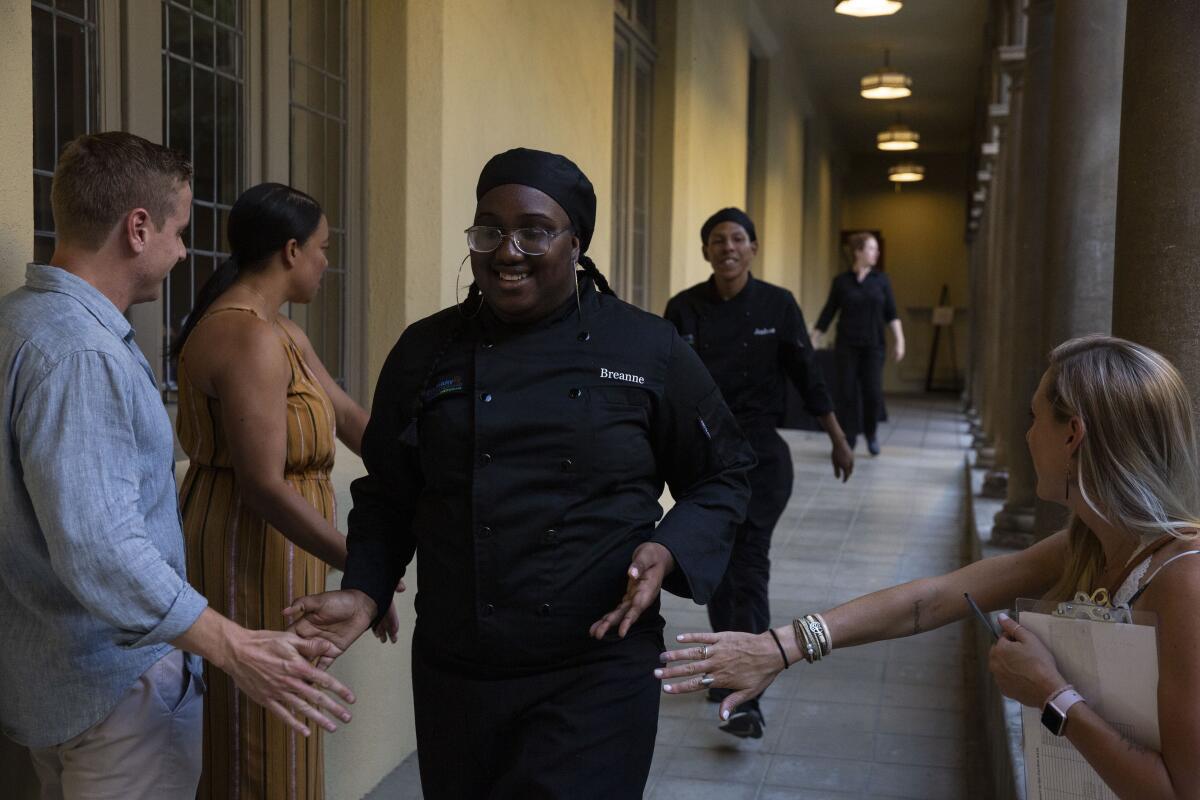
At 19, still a foster child, he became a father.
Jobless and homeless, he tried to steal a necklace and ended up in county jail for 40 days.
“I didn’t like the trajectory of my life,” he said.
He was determined to be the father he never had.
Six months ago, Porter found Hillsides.
Now in a transitional housing apartment in Hollywood, he works two jobs, and sees his 3-year-old daughter, Everleigh, two or three times a week.
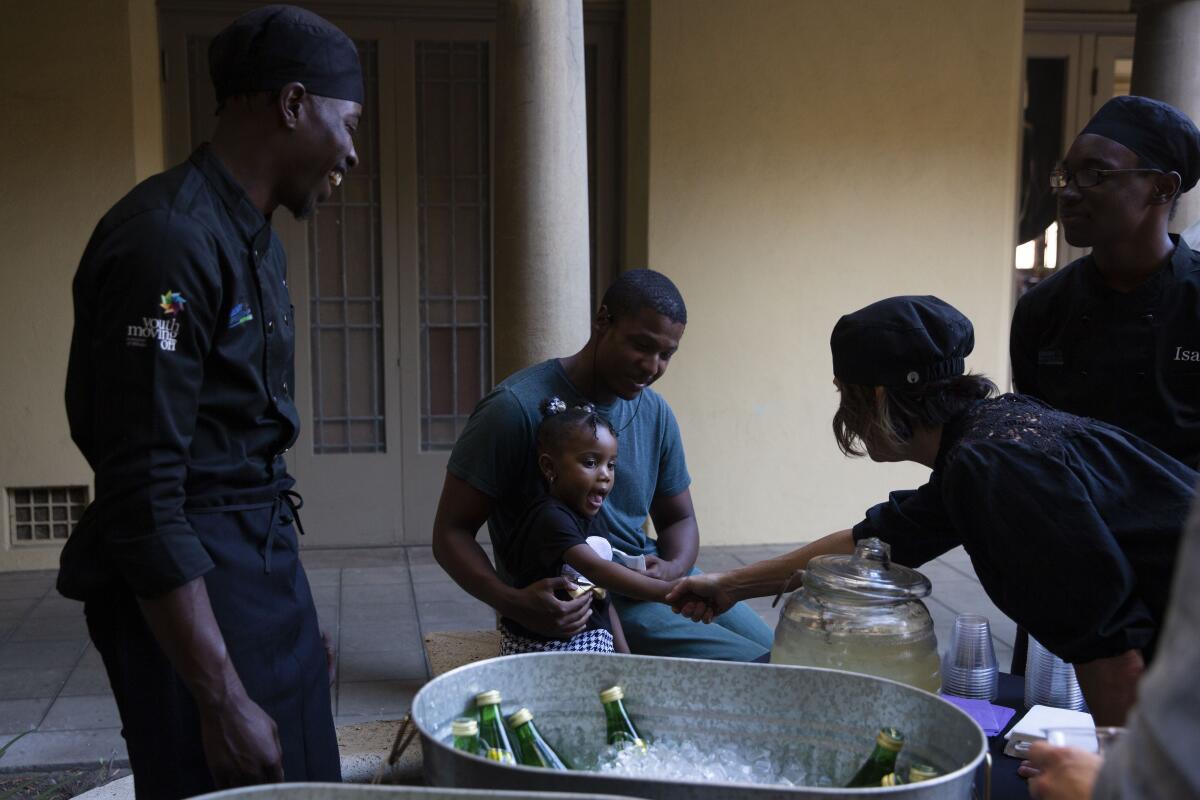
::
Just before guests began arriving at dusk last Sunday, Heather Berg, a restaurant event manager, gave last minute instructions to her young crew:
Serve on the right side, she said, make sure water glasses are full. People will use their utensils from the outside in: salad fork, pasta fork, meat fork, with dessert spoons on top.
“Are you going to let them know which forks to use?” asked Isaac Spence.
“No, they’ll figure it out,” Berg replied. “If they don’t, just take the fork they use and leave them with the rest. We can’t teach everyone Emily Post stuff.”
Instead of cocktails (church rules), guests were offered strawberry mint popsicles — refreshing and not too sweet — made under the supervision of Jennings, who owns Nomad Ice Pops.
Each young chef was allowed to invite one or two guests.
Porter had invited Everleigh and his older brother.
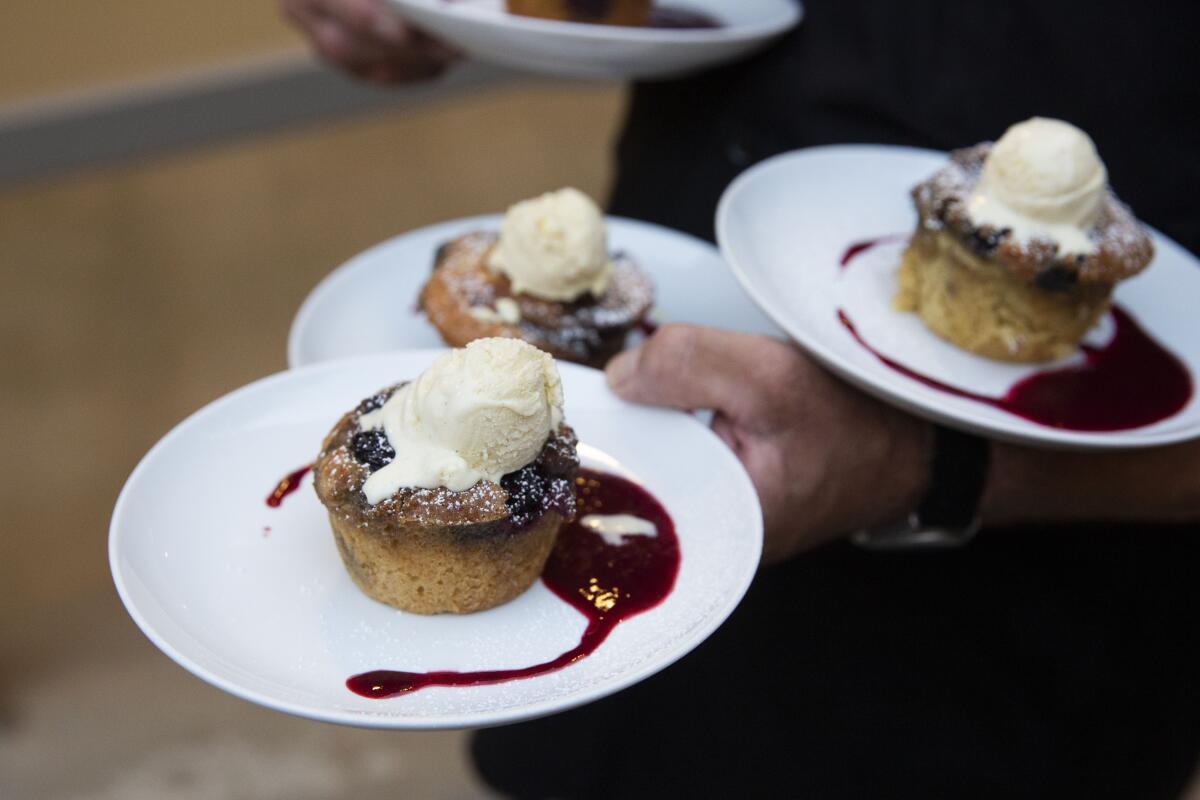
Nearly two hours later, after dessert and coffee, among much whooping and hollering, the students received certificates of completion. Guests, who also included officials and staff from Hillsides, were impressed by the delicious meal.
Porter stood smiling, his little girl perched on his shoulders. He’s already been hired to work for one of the chefs.
Oh, and those buttermilk baby cakes?
Just as chef Poer promised, they were delicious.
More to Read
Sign up for Essential California
The most important California stories and recommendations in your inbox every morning.
You may occasionally receive promotional content from the Los Angeles Times.














